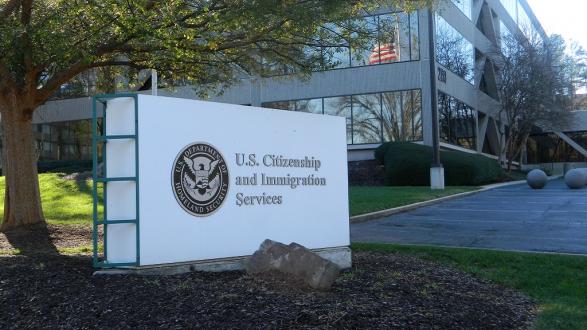The USC Immigrants and Global Migration Initiative (IGMI) recently hosted a virtual discussion exploring the status of U.S. immigration courts during the COVID-19 pandemic. The discussion featured Camille Alick of Alick Communications and Judge Ashley Tabaddor, President of the National Association of Immigration Judges. NAIJ is the official and professional association and union for all immigration judges nationally. The discussion was moderated by Eliane Fersan, Director of USC IGMI. All three are Pacific Council members.
Here are key takeaways from the discussion:
- There is a fundamental structural flaw with the Immigration Courts. Immigration Courts and immigration judges are not part of the judicial branch. They are part of the executive branch and more specifically they are beholden to the U.S. Attorney General. Thus, the court and the judges do not have true independence and are often used as an extension of each administration's law enforcement policies.
- Immigration Judge rulings may be overturned by the Attorney General, the chief prosecutor of the country. Law enforcement concerns rather than judicial concerns tend to lead those decisions.
- There was no instruction from the Department of Justice to close the Immigration Courts due to COVID19 and no guidance for how to deal with the virus was given until unprecedented grassroots efforts arose involving Judges, Prosecutors and Immigration Attorneys, along with public health experts made a joint public call for closures and social distancing in all hearings. Only detained cases are now being heard but serious health concerns and risk of COVID-19 exposures remain.
- The pandemic has exacerbated the issues the courts have dealt with for many years, such as adding to the 1.1M case backlog, procedural decisions being decided from the top down, law enforcement still being the main consideration rather than health and due process concerns.
- The pandemic has forced the detained docket cases to be heard by video and teleconferencing, utilizing subpar equipment. This has made presenting cases exponentially more difficult and less efficient. Due to these restrictions, access to the court by family members, the public, and media has been severely compromised.
- Every administration has shuffled the court dockets. Regardless of what agenda is being pushed forward, the pendulum will eventually swing back. Removing the Immigration Court from under the Executive Branch, is not a Republican issue or a Democratic issue, it is an American issue. There is precedent for removing a court from the Executive Branch to create an independent court, as was done with the Tax Court and the Bankruptcy Court.
- It will take American voter support and Congressional action to remove the Immigration Court from underneath the Executive Branch and give it “Article 1” status—allowing for impartiality and due process.
Watch the full conversation below:
_______________________
The views and opinions expressed here are those of the speakers and do not necessarily reflect the official policy or position of the Pacific Council.




